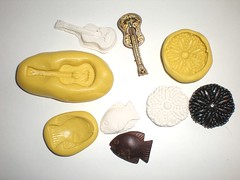© I.Woloshen
When someone asked me recently “of all of the songs you’ve written, which is your favourite?”, it got me to thinking about that age old idea “well they’re ALL my babies” and it’s hard to choose just one. I have different reasons for liking different songs…some of them are more fun to perform, some of them I enjoy to listen to in terms of how they were recorded. In spite of this, sometimes your “best” work just doesn’t cut it for others. I recently saw an interview with an author who had had some criticism of one of his novels. When he went back to read it again, he thought to himself “No, this is exactly the book I wanted to write.” It wasn’t a case of disagreeing with his critique so much as it was deciding that he had accomplished what he set out to do, and beyond that, he had no control of what others thought of his work.
When you begin the process of writing a song, very often your immediate reaction to it is “this is the greatest song I’ve ever written!!” Of course, you’re SUPPOSED to be enthused and fired up about what you are doing, otherwise, why bother? But sometimes you’ll notice that the day after, it just doesn’t seem to be as good a song as you thought 🙂 This is something called “objectivity”. In the opposite state, subjectivity, you are unable to separate yourself from your work. This is a necessary state in order for you to accomplish your task. Songwriting, in its purest form, is your expression. It can often be a very personal expression, right from your gut. In a sense, your song is “you”.
But there comes a time when you have to separate yourself from your songs in order to fully accomplish the task of polishing them and putting them in front of others to scrutinize. This is a step that is only successful when you have also managed to let go of their personal connection to you, which is not so easy to do.
We all have our favourites of our own songs, the ones we love to play and hear, as I was describing above. So I’m not suggesting that you lose touch with your songs entirely! However, I find that a lot of songwriters become defensive and thin-skinned when their songs are critiqued or reviewed by people who are listening from a very objective viewpoint. This is because the songwriters haven’t managed to create that separation yet. So how exactly do you accomplish this? It is not at all easy to put in a nutshell! Every one of your songs has your name attached to it, and it’s impossible to completely disconnect from that fact. But there are some things that you can do to help this process.
Time – this is a very important factor when learning to be more objective about your work. Just as when you wake up the day after writing something and suddenly hear it with new “ears”, the idea of giving your song a little time and distance can help you to disconnect from the personal aspects of it. I’m very aware of the the fact that songs I’ve written at one point in my life that meant something then, don’t necessarily hit me the same way anymore. That’s because my life has moved on, but the song is in a time capsule and only represents that little point in my life. Which brings me to the next point…
Emotional Distance – you are not “static”…as a human being, you are always changing and (hopefully!) growing. Think of your songs as a snapshot. When you look at a picture of yourself taken yesterday, you are likely much more attached to it than you are a picture that was taken a couple of years ago. This is because “you” were a different person a couple of years ago! Your songs are exactly the same.
The Percentage Factor – do yourself a big favour and learn to embellish the “truths” in your songs with some “fiction”. Don’t make your songs 100% ABOUT YOU. For the songs you can’t help doing that with, put them in your closet and work on writing something else. Why? Because you wouldn’t let anyone else read your diary, would you? This is a kind of emotional maturity you can develop over time in your writing. There are the ones you will write for you, and the ones you will write for the public to consume. Recognizing which is which will help you in many ways!
Talk To Yourself – I don’t mean out loud (unless you are alone, of course!). We all have that little “voice” inside us that reasons everything out, and the one that is childish and emotional. Choose to listen to the reasoning voice. If you are hearing or reading someone’s response to your song and it is negative, tell yourself that they are not criticizing you, but your song. Tell yourself that you’ll learn from this experience. Listen for INFORMATION that might be helpful to you in order to make the song better. If the criticism is totally unreasonable (like “this song sucks!”), be like the author who decided for himself that he had written exactly what he wanted to, and that he has no control over others opinions.
The longer you write, the more capable you will be of accomplishing just the right degree of separation. Your songs will ALWAYS be yours, but they will also be able to hold their own without you 🙂


![Reblog this post [with Zemanta]](http://img.zemanta.com/reblog_e.png?x-id=f91d3ef7-00fe-4c2e-bb4b-aeba3ac2ad1f)

![Reblog this post [with Zemanta]](http://img.zemanta.com/reblog_e.png?x-id=8808aae3-181a-4962-8502-267abd0d3b58)

![Reblog this post [with Zemanta]](http://img.zemanta.com/reblog_e.png?x-id=1cbe3d4a-94e9-4fff-8f8d-2ecf4b48162f)

![Reblog this post [with Zemanta]](http://img.zemanta.com/reblog_e.png?x-id=60c2aa8d-8c37-4343-9276-8199484e606d)